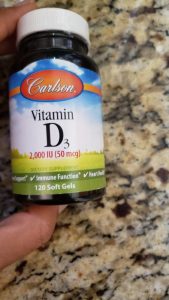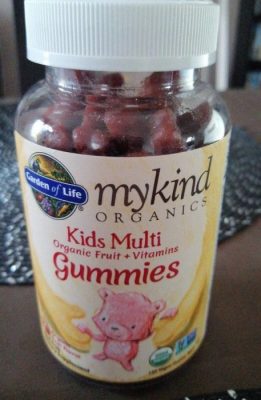Vitamin D, as we all know, plays a key role in the maintenance of our general health. It facilitates the absorption of calcium into our systems, which is essential for maintaining healthy bones and teeth. Vitamin D may also have a role in the prevention of illnesses such as cancer, cardiovascular disease, and stroke. The vast majority of individuals get the vast majority of their vitamin D via exposure to sunshine. On the other hand, children spend far more time inside than adults do, so it’s possible that they aren’t receiving enough vitamin D from just being exposed to the sun. Because of this, it is essential to make certain that children obtain an adequate amount of vitamin D from other sources, such as the food they eat and the supplements they take.

Today’s market offers a selection of several formulations of vitamin D supplements for consumers to choose from. Some are produced using animal sources, such as fish oil or cod liver oil, while others use plant sources, such as mushrooms. Vitamin D3, which is also known as cholecalciferol, is the component that is used to manufacture the vast majority of dietary supplements. Kids vitamin D3 is the type of vitamin D that is produced by our bodies when they are exposed to sunshine, and it is essential for bone health. Even though there is a wide variety of vitamin D supplements available on the market, not all of them are made of the same stuff and have the same effects. Some dietary supplements are more powerful than others, and some are also easier for the body to absorb than others. In general, you should search for a dietary supplement that has at least one thousand international units (IU) of vitamin D3 in each dose. You may also want to search for a supplement that includes extra minerals, such as calcium and magnesium, which can aid enhance absorption if they are included in the supplement.
When it comes to children, the American Academy of Pediatrics (AAP) advises that all children, beginning at birth, should be taking a supplement that includes 400 international units of vitamin D per day. This recommendation applies to all children, regardless of race or ethnicity. However, depending on their age, weight, and the amount of sunshine they are exposed to, some children may need more than this. Consult your kid’s physician if you are unsure of the amount of vitamin D that your youngster needs.
Let’s take a look at the top five vitamin D supplements for children that are created in the United States, now that you have a better understanding of vitamin D and the reasons why it’s essential for children.
Carlson’s Vitamin D3 Gummies for Children
These gummies do not include any gluten, soy, nuts, or eggs, and they use only natural flavors and colors in their production. In addition to other critical vitamins and minerals like vitamin A, vitamin C, and zinc, each gummy bear has 400 international units (IU) of vitamin D3 inside of it.

ChildLife First Defense Immune Formula
This supplement contains a significant amount of vitamin D3, which is meant to assist maintain a child’s immune system. Each serving provides 1000 international units (IU) of vitamin D3, in addition to additional components that are beneficial to the immune system, such as echinacea and elderberry extract.
Garden of Life mykind Organics Kids Gummy Vites
These candies are created with organic fruits and vegetables and do not include any artificial flavors, colors, or preservatives. They are also manufactured without any artificial ingredients. In addition to other vital vitamins and minerals, such as vitamin C, vitamin B12, and folic acid, there are 500 international units (IU) of vitamin D3 packed inside every single gummy.

Nordic Naturals Baby’s DHA
Scandinavian Naturals DHA of the infant This dietary supplement was formulated specifically for infants and young children. Each serving provides you with 300 international units (IU) of vitamin D3, in addition to omega-3 fatty acids, which are critical for the growth of both the brain and the eyes.
Vital nutrients Children’s Vitamin
Vital Nutrients is a supplement that is of superior quality and comes with one thousand international units (IU) of vitamin D3 in each dose. This dietary supplement does not include any of the most common allergies, including gluten, soy, dairy, nut, or egg products.
These are just a handful of the many various kinds of vitamin D pills that may be purchased for children. If you are searching for a supplement for your kid, it is important that you consult with their physician in order to find out what they prescribe.
FAQs:
What brand of vitamin D is best for kids?
Concerning the question of which vitamin D brand is optimal for children, there is no reply that can be categorically recommended. On the other hand, a lot of specialists suggest taking a supplement that has vitamin D3, since this kind of the vitamin is simpler for the body to take in. Additionally, it is essential to pick a dietary supplement for your kid that consists of an adequate quantity of vitamin D, taking into account both their age and weight. Finally, before beginning any new supplement routine with your kid, you should make an appointment with their physician to discuss it beforehand.

What vitamin D is approved by the FDA?
A sufficient amount of vitamin D in the body is required for calcium to be absorbed and used by the body. It may be obtained from sun exposure, dietary supplements, and food sources. Vitamin D has been given the green light by the Food and Drug Administration (FDA) for use in the treatment of osteoporosis as well as the prevention of bone loss. Rickets is a disorder that causes youngsters to have fragile, misshapen bones. Vitamin D has been shown to be an effective therapy for this ailment. Psoriasis, lupus, and multiple sclerosis are just a few examples of the disorders that may be helped by vitamin D therapy.
Which vitamin D3 is made in the USA?
GNC Vitamin D3 is one of the most popular vitamin D3 supplements manufactured in the United States. This dietary supplement is available in tablet and liquid form, and may be used daily or weekly. The vitamin D3 supplement sold by GNC is devoid of genetically modified organisms, gluten, and artificial flavors, colors, and preservatives. It is also one of the most inexpensive vitamin D3 pills available on the market. Now Foods manufactures an excellent vitamin D3 supplement developed in the United States. In addition to being non-GMO and gluten-free, Now Foods’ vitamin D3 supplement is available in both tablet and liquid form. It is somewhat more costly than GNC’s supplement, but the price-to-quality ratio is still favorable. Lastly, if you are seeking for a premium, all-natural vitamin D3 supplement, you may want to investigate Bluebonnet Nutrition. The vitamin D3 supplement manufactured by Bluebonnet contains only certified organic components and is 100 percent vegetarian. It is also one of the costliest vitamins D3 supplements on the market, but its quality and purity make it well worth the cost.
What is the difference between vitamin D and vitamin D3?
Vitamin D is a fat-soluble vitamin found in some foods, supplements, and solar exposure while Vitamin D3 is the type of vitamin D produced by the body in response to sun exposure. Vitamin D3 is also present in some foods and dietary supplements. Vitamins D and D3 are both essential for keeping strong bones and avoiding osteoporosis.

How much Vit D should a child take?
There is no one-size-fits-all solution to this issue since the quantity of vitamin D required by a kid varies according to age, weight, and other variables. The American Academy of Pediatrics, on the other hand, advises that all children aged 6 months to 18 years consume 400 IU (international units) of vitamin D each day. Furthermore, youngsters who do not receive adequate sun exposure or who have dark skin may need greater vitamin D dosages. Consult your child’s physician to establish how much vitamin D he or she should consume.
Last Updated on November 17, 2022 by Jean Annerie Hernandez
DISCLAIMER (IMPORTANT): This information (including all text, images, audio, or other formats on FamilyHype.com) is not intended to be a substitute for informed professional advice, diagnosis, endorsement or treatment. You should not take any action or avoid taking action without consulting a qualified professional. Always seek the advice of your physician or other qualified health provider with any questions about medical conditions. Do not disregard professional medical advice or delay seeking advice or treatment because of something you have read here a FamilyHype.com.